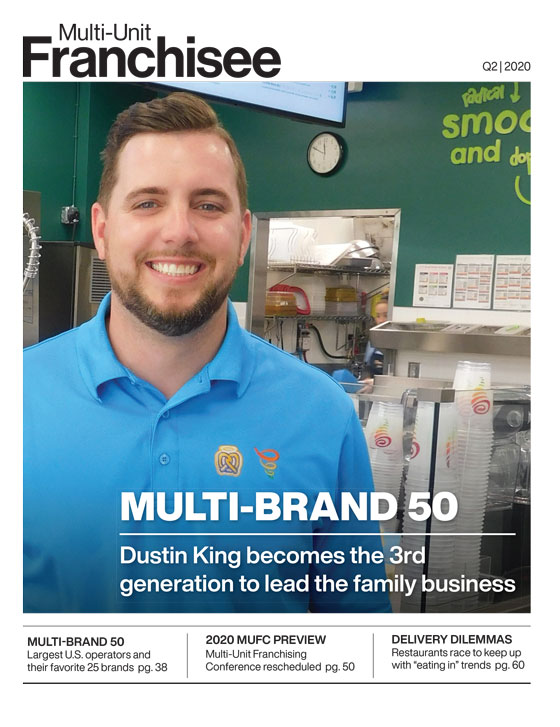2020 Foresight: Obstacles & Opportunities in the Coming Decade

“Business, more than any other occupation, is a continual dealing with the future; it is a continual calculation, an instinctive exercise in foresight.”
Henry R. Luce
As creator and publisher of Life, Time, and Fortune in the early part of the 20th century, Henry Luce is credited with changing the way Americans interact with the news media. The publications he built explored U.S. life and business in new and more intimate ways, arguably setting the stage for much of the content we have today and igniting a hunger for storytelling in a variety of formats. As we enter a new decade, it is worthwhile to pull up and exercise a bit of foresight as we consider obstacles and opportunities that may affect the coming decade.
In a recent Abbot Downing Strategy Report (“A Look Back: What Have the 2010s Taught Us,” Nov. 2019), we summarized a number of the key outcomes of the decade just ended. Both equity and fixed income markets turned in well above average returns in 2019, and did a noteworthy job of remaining resilient despite a host of worrisome headlines on trade (China, EU, Canada/Mexico, Japan); geopolitical concerns (Syria, Iraq, Iran); Brexit uncertainty; political angst (impeachment, large and volatile Democratic field); 35 days of government shutdown; a GM strike; and a plethora of bad weather and natural disasters to muck up economic statistics. Despite the headline headwinds, market participants seemed to focus most closely on economic fundamentals, which proceeded nicely, especially on the consumer front.
Interestingly, the final few weeks of December 2019 brought improved clarity on a number of fronts, possibly stabilizing business confidence and giving credence to the potential for continued steady economic performance. We touch on a few of the most notable trends we are anticipating will have investment meaning in the decade ahead. We plan to write more on many of these in strategy reports to come, but are looking to get the discussion started!
- Returns. “Lower for longer.” How many times have you heard that phrase in the past few years? At some point in the decade, we do expect to see a rationalization of the negative yields, though it may take longer than many expect. The purveyors of much of this debt are sovereign nations with a lot more flexibility in how they approach the situation than, say a dot.com entrepreneur did in 2001, or an underwater homeowner did in 2010. Oddly enough, lower returns may actually be okay, especially if inflation continues to run at the substantially muted pace it has been.
- Artificial intelligence will continue to take over a variety of formerly human interventions. It won’t necessarily replace humans, as much as supplement their abilities. There will be fits and starts as it becomes increasingly obvious that as machines are learning to be intelligent they are learning in the context of the inherent biases of the code writers. Emotional intelligence, critical thinking, and “softer” skills will become increasingly vital for all humans to possess. Ongoing learning and adaption will be imperative for long-term success.
- Cries for the death of capitalism will subside as 1) business model destruction/recreation stabilizes (or becomes the norm), and 2) educational and training opportunities morph to keep up with changing mores.
- Continued movement to the information age and away from basic manufacturing. Even within remaining manufacturing facilities, continued business model disruption will occur with robots and AI alongside more technologically sophisticated humans. Such trends and end-user demands need better educational and training systems.
- Disparities between “haves” and “have nots,” much of these brought on by business model disruptions, will reach a head. Policies to enhance educational outcomes and ongoing career training opportunities will proliferate.
- Lack of infrastructure investment will come to a head with government entities from countries to local municipalities forced to deal with the reality of infrastructure that is more than a century old. Climate change impacts will also predominate.
- Environment, food, water, energy. Interestingly, even as more work toward the upper reaches of Maslow’s “Hierarchy of Needs” pyramid (self-actualization), the basic needs at the bottom (shelter, food, safety, and security) will come into acute focus for millions as climate change causes drought- and starvation-induced migration that is ignorant of human-made boundary lines, in much the same way as humans have been migrating around the planet since the dawn of time.
- Changing demographics and sensibilities at the younger end (Millennials and Gen Z) will continue to drive changes in household formation, purchasing norms, and corporate responsibility demands.
- Markets. Globalization continues, along with a broadening of asset classes and access to them as share count continues to recede.
- Inflation picks up as global growth stabilizes and trillions in negative yields revert to more neutral means. This could well be the single biggest event that occurs, depending on how orderly (or not) it transpires. If it becomes disorderly, it could prompt an exodus from fixed-income funds as investors (particularly retail and those new to the category) realize that the returns the asset class have been generating are not coupon yield, and that the asset class considered “conservative” could instead generate permanent loss of capital.
- Health care will continue to evolve with significant advances made in monitoring, coordination, and driverless transportation to allow an increasing number of individuals to age in place with dignity. Advances in diagnostic and preventive care could lead to personalized medicine and genomic health becoming a standard, low-cost offering.
Carol Schleif, CFA, is deputy chief investment officer at Abbot Downing, which provides products and services through Wells Fargo Bank and its affiliates and subsidiaries. She welcomes your questions and comments at [email protected].
Share this Feature
Recommended Reading:
FRANCHISE TOPICS
- Multi-Unit Franchising
- Get Started in Franchising
- Franchise Growth
- Franchise Operations
- Open New Units
- Franchise Leadership
- Franchise Marketing
- Technology
- Franchise Law
- Franchise Awards
- Franchise Rankings
- Franchise Trends
- Franchise Development
- Featured Franchise Stories
FEATURED IN

Multi-Unit Franchisee Magazine: Issue 2, 2020

$200,000
$300,000





 The multi-unit franchise opportunities listed above are not related to or endorsed by Multi-Unit Franchisee or Franchise Update Media Group. We are not engaged in, supporting, or endorsing any specific franchise, business opportunity, company or individual. No statement in this site is to be construed as a recommendation. We encourage prospective franchise buyers to perform extensive due diligence when considering a franchise opportunity.
The multi-unit franchise opportunities listed above are not related to or endorsed by Multi-Unit Franchisee or Franchise Update Media Group. We are not engaged in, supporting, or endorsing any specific franchise, business opportunity, company or individual. No statement in this site is to be construed as a recommendation. We encourage prospective franchise buyers to perform extensive due diligence when considering a franchise opportunity.